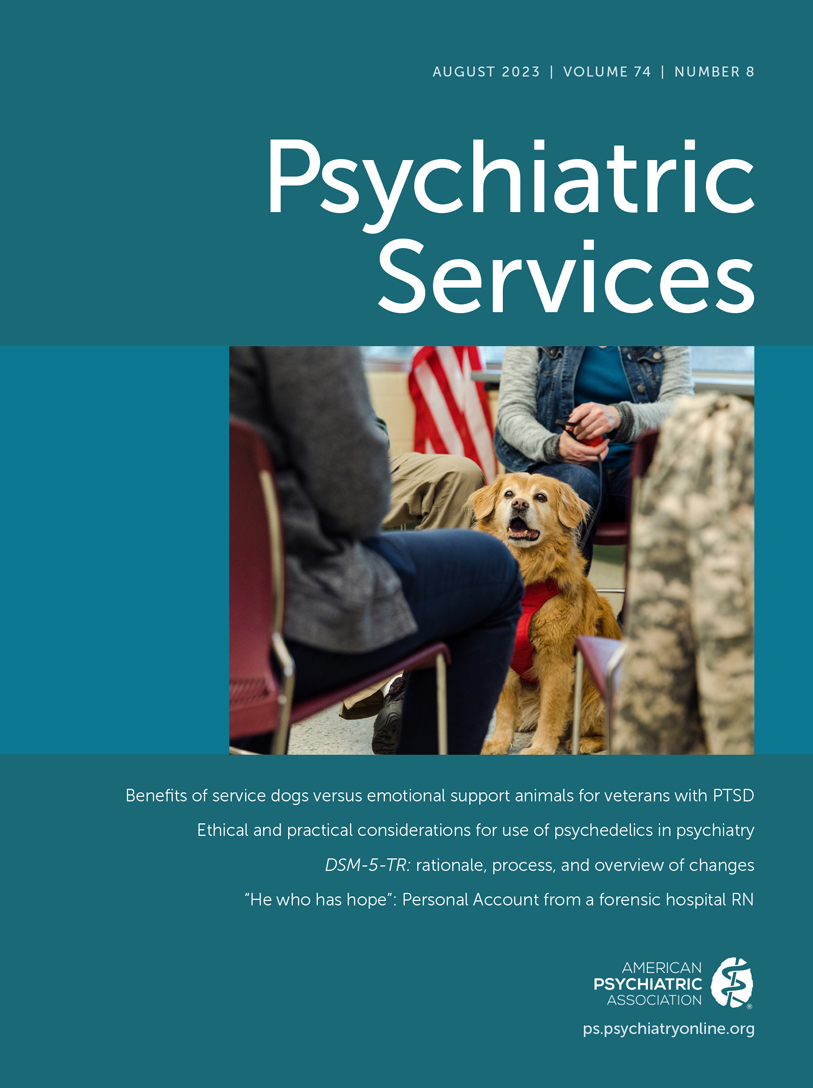Prospective Association of Unmet Mental Health Treatment Needs With Suicidal Behavior Among Combat-Deployed Soldiers
Abstract
Objective:
Military personnel frequently report discontinuing or not pursuing psychiatric treatment despite perceiving a need for services. This study aimed to examine how unmet need for treatment or support among U.S. Army soldiers relates to future suicidal ideation (SI) or suicide attempt (SA).
Methods:
Mental health treatment need and help seeking in the past 12 months were evaluated for soldiers (N=4,645) who subsequently deployed to Afghanistan. Weighted logistic regression models were used to examine the prospective association of predeployment treatment needs with SI and SA during and after deployment, with adjustment for potential confounders.
Results:
Compared with soldiers without predeployment treatment needs, those who reported not seeking help despite needing it had increased risk for SI during deployment (adjusted OR [AOR]=1.73), past-30-day SI at 2–3 months postdeployment (AOR=2.08), past-30-day SI at 8–9 months postdeployment (AOR=2.01), and SA through 8–9 months postdeployment (AOR=3.65). Soldiers who sought help and stopped treatment without improvement had elevated SI risk at 2–3 months postdeployment (AOR=2.35). Those who sought help and stopped after improving did not have increased SI risk during or 2–3 months after deployment but had elevated risks for SI (AOR=1.71) and SA (AOR=3.43) by 8–9 months postdeployment. Risks for all suicidality outcomes were also elevated among soldiers who reported receiving ongoing treatment before deployment.
Conclusions:
Unmet or ongoing needs for mental health treatment or support before deployment are associated with increased risk for suicidal behavior during and after deployment. Detecting and addressing treatment needs among soldiers before deployment may help prevent suicidality during deployment and reintegration periods.
Access content
To read the fulltext, please use one of the options below to sign in or purchase access.- Personal login
- Institutional Login
- Sign in via OpenAthens
- Register for access
-
Please login/register if you wish to pair your device and check access availability.
Not a subscriber?
PsychiatryOnline subscription options offer access to the DSM-5 library, books, journals, CME, and patient resources. This all-in-one virtual library provides psychiatrists and mental health professionals with key resources for diagnosis, treatment, research, and professional development.
Need more help? PsychiatryOnline Customer Service may be reached by emailing [email protected] or by calling 800-368-5777 (in the U.S.) or 703-907-7322 (outside the U.S.).



